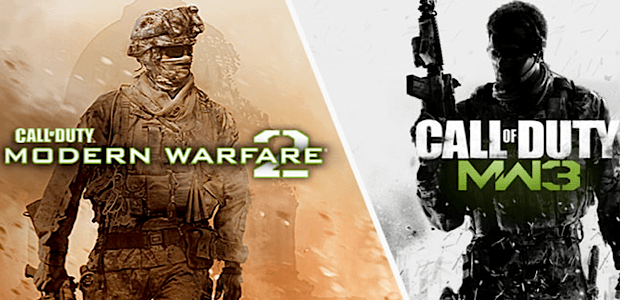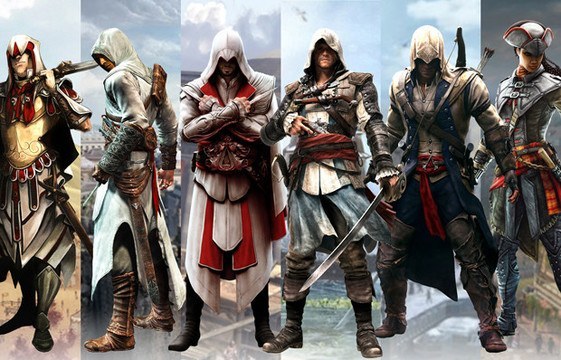Annualized franchises are becoming more common (ironically enough) every year. From Call of Duty to Assassin’s Creed, there are plenty of popular games that took the idea of sequels a little too far. The sad thing is, these sequel mills are (by necessity) very popular, and therefore are usually rather good games. Call of Duty 4: Modern Warfare was an unexpected masterpiece, and the original Assassin’s Creed was an intriguing and original game whose first sequel (which was released two years later, for the record) greatly improved and expanded upon.
With great success however, comes great responsibility, and it is a responsibility that is largely ignored by many developers. Yet despite the endless barrage of complaints and hate that these developers get from us for their seemingly lazy and money-grabbing behaviour, enough of us come back for more every year that the business practice is still viable.
The enabling players
It is often the case that some of the most popular things seem to be the most hated. Realistically this is probably because people generally only get very vocal about something that they love or hate. It is rare to see someone take to the Internet to passionately rant about how they thought a game was enjoyable and worth the investment, but not something to play again in the near future. People don’t care enough to voice or view such opinions.

Modern Warfare practically started a subline of COD games
There are those who know that their beloved games have become into repetitious franchises but still enjoy the titles. These people (of which I am one) remain quiet and simply purchase the game every year, play it and forget about it until they are reminded of the franchise at the next E3. Such people make up a large fraction of the fan base.
Then there are those who complain endlessly and yet still seem to buy and play every installment. Such people simply like to complain (as we all do) and still get pleasure out of playing the game by being able to slate it. In a weird way they are actually getting enjoyment and value from the game, albeit in an unorthodox way.
The Resistance who practice what they preach
Finally you have the activists, who do not play the games as a form of protest. The issue is that these people make up such a small percentage of the former/current fan-base that their actions are inconsequential. The thing is though, these guys have got it right. We are all aware that such franchises are a blow against innovation. But we would rather play the next Assassin’s Creed that we know will be an okay game, than collectively force Ubisoft to think of something new.

We got stuck on Ezio for quite a while
We are all willing to purchase a new Fifa or Madden every single year, even now that updates and patches could easily make new versions a triennial thing. Is it a fear of being left out or left behind in some way? Are we essentially being bullied or peer pressured into acceptance? Can only the very self-assured can fight against it?
Annualized franchises aren’t developed in a year
Having said this, annualized franchises sometimes get a harder time than they deserve. The two main examples I have used, Assassin’s Creed and Call of Duty may be annual, but the installments are actually developed by different teams. The same team only puts out a game a maximum of every two years. Granted, two Assassin’s Creed games in one year takes some explaining, but the main point is that more time and effort go into each game than most seem to give developers credit for.
At least the campaign is a new one. There are new characters, weapons, music, and environments. The multiplayer is tweaked in some way and has fresh maps. There is ultimately a lot of new content in most annualized franchises – usually a lot more than we realize. All that content took plenty of time and effort. We just ignore that fact because the game is in essence the same as what came before.
The annual sports games are far worse as they simply get the team rosters up to date (something a free update could very easily do) and add some token “improvements” to gameplay. There is little justification for a new sport game every season.
So glad that I got to pay $60 for this…
Other annualised franchises may lack creativity, but they still offer new content. Regardless of what camp you sit in, if you still buy the games, then you are obviously getting just enough out of them to make you come back every year. If you have stopped, then more power to you. Why should it bother you that a new installment is announced every year? I don’t get annoyed when a racing game is announced just because I don’t play them.
As usual, the message here is to play what you want and let others do the same.
In enough time, more and more gamers will stop buying these games if they stop offering enough to justify their existence. The proof is in the pudding, or rather the sales. Enough people enjoy playing a new one every year and until that stops being the case, these sequel mills will keep grinding away. Don’t let it get to you.
What do you think of annualized franchises? Do you enjoy them but wish that you didn’t? Or are developers given too much of a hard time? Let us know in the comments below.








Published: Jul 11, 2015 02:22 pm